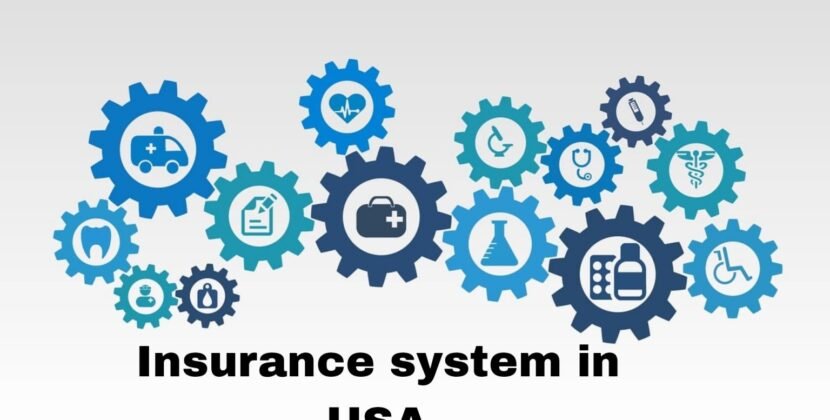Key Takeaways:
- Payroll services help businesses improve accuracy by automating complex calculations and reducing manual errors.
- Enhanced security features protect sensitive employee and financial data from breaches and unauthorized access.
- Employing payroll services ensures compliance with ever-changing tax and labor regulations, preventing costly penalties.
- Streamlining payroll processes saves time and resources, allowing businesses to focus on strategic growth.
Table of Contents:
- Introduction
- Enhancing Accuracy Through Automation
- Ensuring Data Security and Privacy
- Compliance with Tax and Labor Laws
- Saving Time and Resources
- The Future of Payroll Services
- Conclusion
Introduction
In today’s fast-paced business environment, managing payroll accurately and securely is more critical than ever. Payroll services have emerged as essential tools for businesses of all sizes, offering various solutions that improve accuracy and enhance security. By automating complex processes and safeguarding sensitive data, payroll services enable companies to focus on growth while ensuring compliance with relevant laws and regulations.
With the rise of digital technology, payroll systems have evolved from manual, error-prone processes to sophisticated platforms that offer comprehensive payroll solutions. These systems streamline payroll operations and provide actionable insights into workforce management, fostering a more efficient and productive workplace.
Enhancing Accuracy Through Automation
One of the primary benefits of payroll services is their ability to improve accuracy through automation. Businesses that run payroll online with advanced payroll systems can significantly reduce manual errors that often occur during payroll. Automation ensures precise calculations for wages, taxes, and deductions, leaving little room for human error.
For example, automating time tracking and attendance allows payroll systems to compute employees’ hours accurately worked and overtime, eliminating discrepancies. This ensures employees are compensated correctly and builds trust and transparency within the organization. Additionally, automated payroll systems can integrate with other business software, such as accounting and HR management tools, leading to seamless data flow and further enhancing accuracy. This integration minimizes the risk of data entry errors and ensures consistency across various business functions.
Moreover, automated payroll systems can handle complex payroll tasks, such as calculating benefits, retirement contributions, and other deductions. By automating these processes, businesses can ensure that all aspects of payroll are managed accurately and efficiently, reducing the administrative burden on HR personnel.
Ensuring Data Security and Privacy
Protecting sensitive data is a significant concern for businesses, and payroll services are crucial in ensuring data security and privacy. Advanced payroll systems employ robust encryption technologies to safeguard employee information, including social security numbers, bank account details, and salary data, from unauthorized access and breaches.
Furthermore, payroll services often include multi-factor authentication and regular security audits to detect and address vulnerabilities proactively. By implementing these security measures, businesses can build trust with their employees, knowing their personal and financial information is secure. These security protocols are essential for preventing data breaches, which can have severe economic and reputational consequences for businesses.
In addition to encryption and authentication, payroll services typically offer secure data backup solutions to ensure data integrity and availability. Regular backups protect against data loss due to system failures or cyberattacks, allowing businesses to recover quickly and maintain continuity in payroll operations.
Compliance with Tax and Labor Laws
Businesses can find it challenging to comply with ever-changing tax and labor laws. Payroll services are designed to keep pace with these changes, ensuring all payroll processes adhere to the latest regulations. This includes accurate tax withholdings, proper employee classification, and adherence to minimum wage and overtime rules.
By utilizing payroll services, businesses can avoid costly penalties and legal issues associated with non-compliance. These services often provide real-time updates on regulatory changes, allowing companies to adjust their payroll processes accordingly and maintain compliance. This proactive approach to compliance helps businesses mitigate risks and focus on their core operations.
Additionally, payroll services can assist businesses in managing complex payroll scenarios, such as multi-state taxation and international payroll. Payroll services help companies to operate seamlessly across different jurisdictions by ensuring compliance with diverse regulatory requirements.
Saving Time and Resources
Managing payroll can be time-consuming and resource-intensive for small and medium-sized businesses to streamline the payroll process, from data entry to tax filing, freeing valuable time and resources. This allows HR personnel and business owners to focus on strategic initiatives and core business operations.
For instance, automated payroll systems can generate detailed payroll reports, track employee attendance, and manage benefits administration with minimal manual intervention. Payroll services help businesses operate more efficiently and effectively by reducing administrative burdens. This increased efficiency translates to cost savings, as companies can strategically allocate resources.
Payroll services also offer scalable solutions that can grow with the business. Whether expanding its workforce or entering new markets, payroll services can adapt to changing needs, ensuring continuous support and optimal performance.
The Future of Payroll Services
The future of payroll services looks promising, with continued technological advancements driving innovation and improving functionality. Emerging trends include the integration of artificial intelligence (AI) and machine learning to enhance accuracy and efficiency further. AI-powered chatbots, for instance, can assist employees with payroll-related queries, providing instant and accurate responses.
Additionally, blockchain technology is set to revolutionize payroll security and transparency. Blockchain’s decentralized ledger system can securely record and verify payroll transactions, ensuring data integrity and reducing the risk of fraud. This technology offers a new level of transparency and trust, allowing businesses to manage payroll confidently.
As payroll services evolve, businesses can expect even greater accuracy, security, and compliance. Leveraging these advanced solutions will be essential for staying competitive and meeting the demands of a dynamic business landscape. Future payroll systems may also incorporate advanced analytics to provide deeper insights into workforce trends and financial performance, empowering businesses to make data-driven decisions.
Conclusion
Improving the accuracy and security of payroll processes is vital for modern businesses. Payroll services offer a range of solutions that automate complex calculations, safeguard sensitive data, ensure compliance with tax and labor laws, and save time and resources. By adopting these services, businesses can focus on strategic growth while providing peace of mind to their employees.
As technology advances, payroll services will be increasingly important for operational efficiency and business success. Companies that invest in sophisticated payroll solutions will be better positioned to navigate the challenges of the modern business environment, ensuring long-term sustainability and growth.













